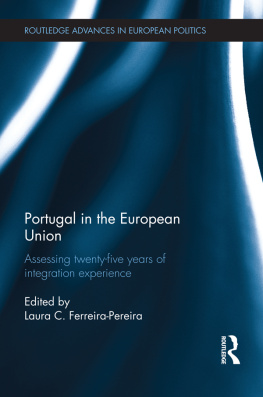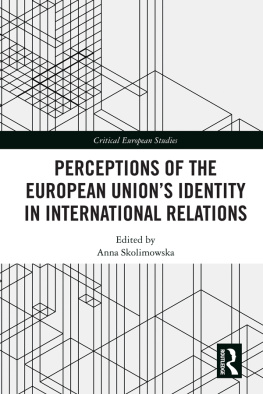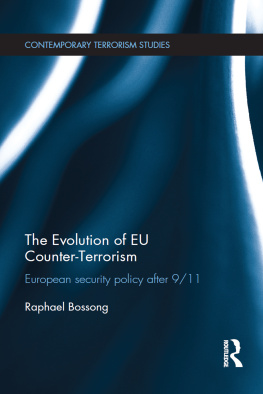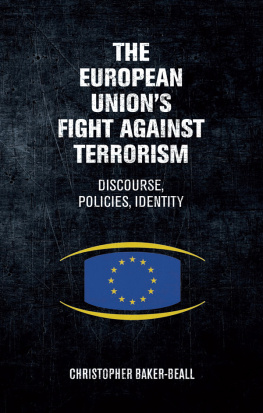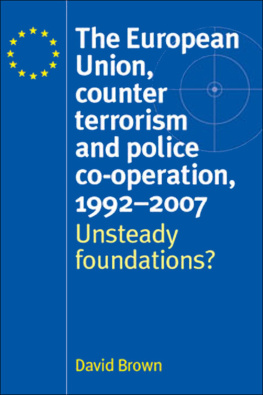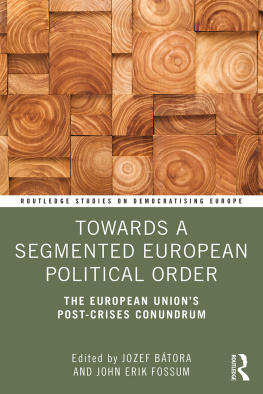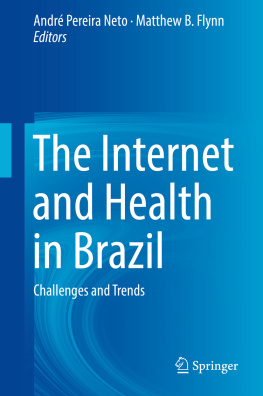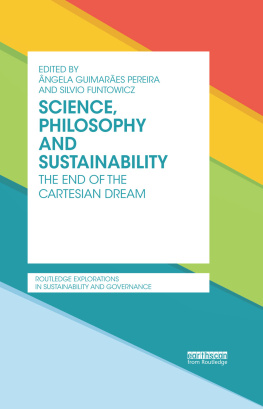The European Unions Fight Against Terrorism
This book contributes to the understanding of the counter-terrorism (CT) policy of the European Union (EU) by offering a set of analyses focusing on its external dimension. Whilst calling for the combination of internal and external policies as well as cooperation with third countries and international institutions, the external dimension of EUCT challenges previous assumptions on the functioning of the EU and offers new testing ground for innovative theoretical and methodological approaches.
This volume provides the first systematic assessment of the external dimension of EUCT. It covers transatlantic counter-terrorism cooperation, the interaction between EU institutions and policies, theoretical debates on EU actorness in counter-terrorism and the role of judicial institutions in international counter-terrorism. Furthermore, it draws attention to the need for engaging in new discussions over the post-Lisbon Treaty Common Foreign and Security Policy (CFSP), the international fight against terrorism, and the way international actors cooperate and compete on the security arena. This book will be of interest for both academics and practitioners working on EU foreign policy, transatlantic relations and international counter-terrorism. It will also be of interest for students and journalists specialised on European and international affairs.
This book was published as a special issue of European Security.
Laura C. Ferreira-Pereira is Professor of Political Science and International Relations at the University of Minho, in Portugal; and Senior Researcher at the research centre NICPRI based at the same university.
Bruno Oliveira Martins is a Research Fellow at Aarhus University, in Denmark, and at the research centre NICPRI at the University of Minho, in Portugal.
The European Unions Fight Against Terrorism
The CFSP and Beyond
Edited by
Laura C. Ferreira-Pereira and Bruno Oliveira Martins
First published 2014
by Routledge
2 Park Square, Milton Park, Abingdon, Oxon, OX14 4RN
Simultaneously published in the USA and Canada
by Routledge
711 Third Avenue, New York, NY 10017
Routledge is an imprint of the Taylor & Francis Group, an informa business
2014 Taylor & Francis
This book is a reproduction of European Security, vol. 21, issue 4. The Publisher requests to those authors who may be citing this book to state, also, the bibliographical details of the special issue on which the book was based.
All rights reserved. No part of this book may be reprinted or reproduced or utilised in any form or by any electronic, mechanical, or other means, now known or hereafter invented, including photocopying and recording, or in any information storage or retrieval system, without permission in writing from the publishers.
Trademark notice: Product or corporate names may be trademarks or registered trademarks, and are used only for identification and explanation without intent to infringe.
British Library Cataloguing in Publication Data
A catalogue record for this book is available from the British Library
ISBN 13: 978-0-415-84241-9
Typeset in Times New Roman
by Taylor & Francis Books
Publishers Note
The publisher would like to make readers aware that the chapters in this book may be referred to as articles as they are identical to the articles published in the special issue. The publisher accepts responsibility for any inconsistencies that may have arisen in the course of preparing this volume for print.
Contents
Laura C. Ferreira-Pereira and Bruno Oliveira Martins
Christian Kaunert, Sarah Lonard and Alex MacKenzie
Andrew L. Porter and Annegret Bendiek
Xiana Barros
Bruno Oliveira Martins and Laura C. Ferreira-Pereira
Erik Brattberg and Mark Rhinard
Christian Kaunert
Christina Eckes
The chapters in this book were originally published in European Security, volume 21, issue 4 (December 2012). When citing this material, please use the original page numbering for each article, as follows:
The external dimension of the European Unions counter-terrorism: an introduction to empirical and theoretical developments
Laura C. Ferreira-Pereira and Bruno Oliveira Martins
European Security, volume 21, issue 4 (December 2012) pp. 459473
The social construction of an EU interest in counter-terrorism: US influence and internal struggles in the cases of PNR and SWIFT
Christian Kaunert, Sarah Leonard and Alex MacKenzie
European Security, volume 21, issue 4 (December 2012) pp. 474496
Counterterrorism cooperation in the transatlantic security community
Andrew L. Porter and Annegret Bendiek
European Security, volume 21, issue 4 (December 2012) pp. 497517
The external dimension of EU counter-terrorism: the challenges of the European Parliament in front of the European Court of Justice
Xiana Barros
European Security, volume 21, issue 4 (December 2012) pp. 518536
Stepping inside? CSDP missions and EU counter-terrorism
Bruno Oliveira Martins and Laura C. Ferreira-Pereira
European Security, volume 21, issue 4 (December 2012) pp. 537556
The EU as a global counter-terrorism actor in the making
Erik Brattberg and Mark Rhinard
European Security, volume 21, issue 4 (December 2012) pp. 557577
Conclusion: assessing the external dimension of EU counter-terrorism ten years on
Christian Kaunert
European Security, volume 21, issue 4 (December 2012) pp. 578587
Please direct any queries you may have about the citations to clsuk.permissions@cengage.com
Laura C. Ferreira-Pereira
School of Social and Political Sciences (ISCSP), Technical University of Lisbon, Lisbon, Portugal
Having recently completed its first decade of existence, the EUs counter-terrorism policy has been receiving increasing scholarly attention as reflected in the specialized literature devoted to this emerging policy area. Its external dimension, nevertheless, has not been the subject of thorough and systematic analyses which scrutinize its characteristic features and principal actors, policies and interests. Against this backdrop, the introductory article of this Special Issue aims at providing a contextualised assessment of the external dimension of EU counter-terrorism while discussing the impact of the Lisbon Treaty upon this policy field. It proceeds with an examination of the policies, interests and actorness dynamics associated with the EUs counter-terrorism policy in highlighting the major findings and conclusions conveyed by the five contributions to this Special Issue. Its conclusion points to possible avenues for future research on the basis of identified underdeveloped topics, under-theorised aspects and neglected issues in the existing literature.
Introduction
The approach of the European Union (EU) to the fight against terrorism has been a challenging topic for scholars whose research interests focus on European integration, in general, and on the Unions foreign and security policy, in particular. This is hardly surprising given the multi-level/cross-institutional nature of the subject which encompasses both internal and external policies while calling for a combined array of state and EU actors, institutions, agencies and instruments.



